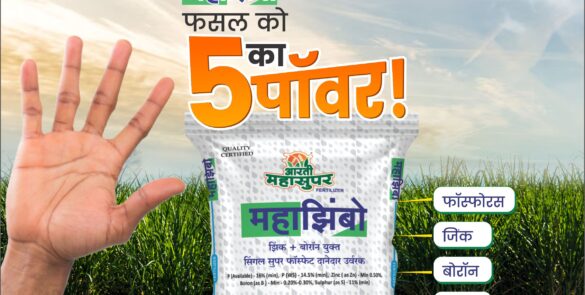A large number of fragmented holdings characterize Indian agriculture. About 80 percent to 85 percent of these holdings belong to small farmers. As being highly unorganized, the farmers are not capable of attaining a good value of their farming produce.
As per agricultural communities, these problems to farmers can be resolved by organizing their business through Farmer Producer Organizations (FPOs). FPOs are producer organizations that support farmers in a wide range of aspects right from enabling input procurement to having market connections. FPOs facilitate member farmers to get advantages of economies of scale in processing as well as the marketing of their agriculture produce.
The Department of Agriculture and Cooperation, Govt. of India and the Ministry of Agriculture has acknowledged farmer producer organizations registered under the provisions of the Companies Act, 1956. It is further recognized as the most appropriate institutional form which mobilizes farmers and puts together their capabilities to cooperatively leverage their agriculture production, promotion, and marketing strengths.
What is the need of Farmer Producer Organizations?
The primary objective behind FPO is to ensure healthier income for the farmers through their own organizational setup. As in agricultural marketing activities, multiple intermediaries eat up most of the revenue part, and the producers get very less part of what the consumer pays. However, through aggregation, they can get the benefits of economies of scales and even possess an enhanced bargaining power to deal with the direct marketplace stakeholders.
How Farmer Producer Organizations are promoted
The Indian Government, through Small Farmers’ Agribusiness Consortium (SFAC), is promoting FPOs by mobilizing the farmer members. SFAC is a registered society underneath the Department of Agriculture, Cooperation & Farmers Welfare, which assists farmers in registering as companies. SFAC has lent a hand to help around 816 FPOs for company registrations as of 31st May 2019.
Adding to the above numbers, even the National Bank for Agriculture and Rural Development (NABARD) is aggressively promoting FPOs in different states and has so far assisted 2154 FPOs. Moving further, Ministry of Rural Development and the Deendayal Antyodaya Yojana – National Rural Livelihood Mission (DAY-NRLM), are also helping FPOs by mobilizing farmers. Many registered FPOs have been enabled right under this mission. As per reports facilitated from Karnataka State, there are around 371 FPOs in the States for which the district wise information is captured.
To motivate more farmers to set up FPOs, Government is offering multi-level assistance like the Credit Guarantee Fund Scheme and Equity Grant Scheme right through SFAC.
Additionally, FPOs can also benefit under a range of different schemes of the Government of India. These schemes include the Agricultural Marketing Infrastructure (AMI), Mission for Integrated Development of Horticulture (MIDH) as well as Venture Capital Assistance (VCA) for steering their agri-business activities.
How FPOs are enabled for comprehensive business and value chain development
Creating market connections and linkages throughout this value chain development for farmers is a significant strategy being practiced by the Government of India. SFAC and NABARD have enabled training to the Board of Directors and CEO’s of FPOs to facilitate them to work efficiently.
Adding to the list, even the Indian Council of Agricultural Research (ICAR) is offering technical backing and support to FPOs through Krishi Vigyan Kendras of the relevant districts in the form of capability development of its members. These programs support members in numerous aspects of agriculture and connected sectors including technical processing, production technologies as well as value addition.
Promotion of FPO involves wide-ranging processes
Promotion of FPO involves extensive processes, which include legal formalities, business, and organizational structuring, and better capacity development. For accomplishing this, requires a complete understanding of FPO concepts, diverse design variables, social capital creation, and gaining knowledge for process management.
Process Guidelines for FPOs comprises of
- Appoint FPOs as procurement agents for MSP operations for numerous crops.
- Use FPOs as implementing agencies for a range of agricultural development programs, which include RKVY, NFSM, and ATMA.
- Extend the advantages of Central and State-funded programs in agriculture to FPO members on a privileged basis.
- Link FPOs to cooperative banks, State Financial Corporations, and other financial institutions.
- Enable them with working capital, processing infrastructure, and storage investments.
- Facilitate state-level policies to back and strengthen FPOs to make them further dynamic, highly sustainable as well as self-governing bodies.
Enablement of FPO Business Operations, Assessment and Audit
Business operations can be enabled with the initiation of procurement, processing, production, marketing as well as financial service activities of an FPO. There is a continuous assessment of the overall performance of multiple stakeholders, which include farmer members, service providers, and the governing board of directors. They should also assist FPOs to reflect by utilizing Institutional Maturity Index to realize areas of enhancements. The streamlined internal processes and accounting audits assist in maintaining both accountabilities as well as operational transparency.
How Mobilisation of Farmers can be facilitated
Mobilization of farmers can be facilitated through an array of communication aids such as posters, pamphlets, documentary movies, meetings, and right vision building of promoter farmer-members. Promoter farmer-members are those who are keen to create an FPO on a voluntary foundation, having understood the significance and potential advantages of forming FPOs, gained through exposure and training provided.
Key Takeaways
The collectivization of marginal and small farmers into Farmer Producer Organisations (FPOs) has evolved as one of the most efficient pathways to deal with several issues and challenges of agriculture production.
The FPOs have enhanced access to agricultural investments, the use of better technology, and market inputs to farmers. Most crucially, it has enabled access to reasonable markets, which include linking of producer groups to direct marketing and selling opportunities using the access of market aggregators.

















One Response